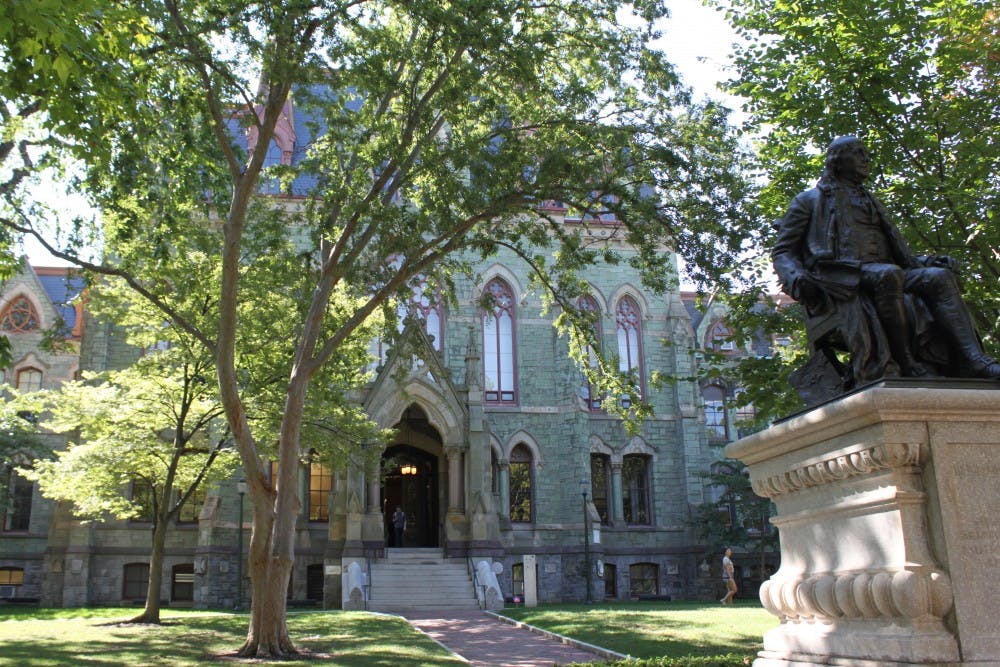
Seven student leaders came together on Sunday to discuss the role of mental health care in their lives and in the student community.
The event, "Deconstructing the Penn Face," was sponsored by the College Dean’s Advisory Board, in partnership with Active Minds, Penn Reflect, CogWell and Penn Kind. This effort, catered primarily to freshman, was part of the Board's larger goal of enlisting student leaders in its mental health initiatives.
Members of the panel sought to dismiss the myth that pressure comes only from academics. Financial and social circumstances can play an even larger role for a substantial portion of students, they emphasized.
Wharton senior David Moore , who is president of both Kappa Sigma and the Interfraternity Council, said people tend to overestimate the time their peers spend on social activities. He told freshmen to "not feel the pressure to go out just because everyone is."
"The world is not going to burn down if you disconnect from friends and extracurriculars for 24 hours," he added.
Panelists emphasized that using a generic term like "Penn Face" to encapsulate a host of underlying problems can have negative consequences.
“The most important thing is to figure out what works for you, and not to try to impose your own rules," College sophomore Vikki Kalbacher said . "Using an all-catching term suggests that we all suffer stress in the same way."
"Sometimes advice is not what someone wants or needs," College junior Caitlin Doolittle said. “Using the term 'Penn Race' can detract from the severity and reality of the situation, and give us a way to saying that since it is something we all experience, we do not really need to deal with it. The reality is more complicated than that."
Nursing senior Ian Jeong said the largest problem with the term "Penn Face" is that it fosters a reactionary approach.
“More than talking about mental health care, perhaps the administration should foster events that help young students form lasting support networks," he said. "Expanding the number and quality of events hosted by freshmen dorms is a first step."
College senior and College Dean's Advisory Board Co-Chair Samip Sheth described the other initiatives the organization has to provide support to students on campus
“The event was a good way to broaden the discussion in peer-to-peer mental health care," he said.
iCare, the College Dean's Advisory Board's flagship peer to peer support program, similarly seeks to support students' mental health by connecting them with other students.
The Daily Pennsylvanian is an independent, student-run newspaper. Please consider making a donation to support the coverage that shapes the University. Your generosity ensures a future of strong journalism at Penn.
Donate




